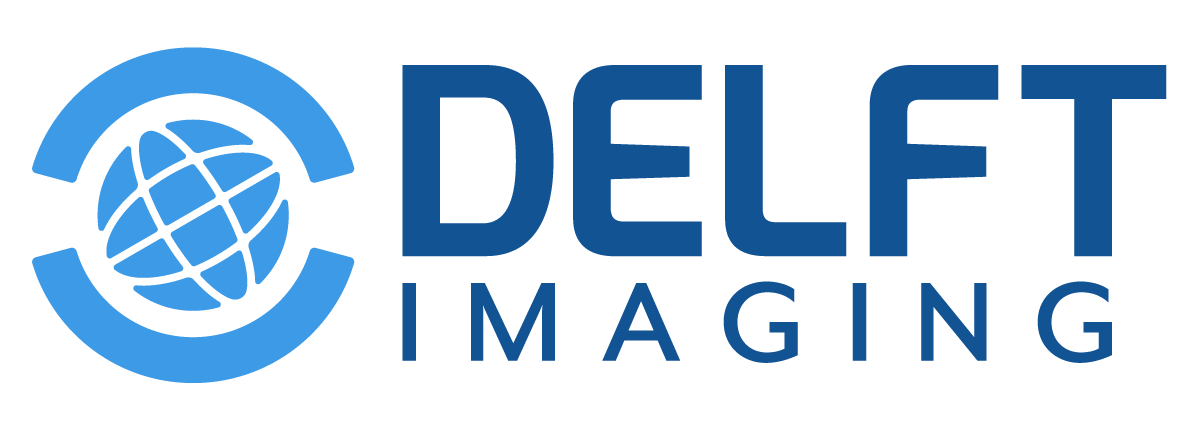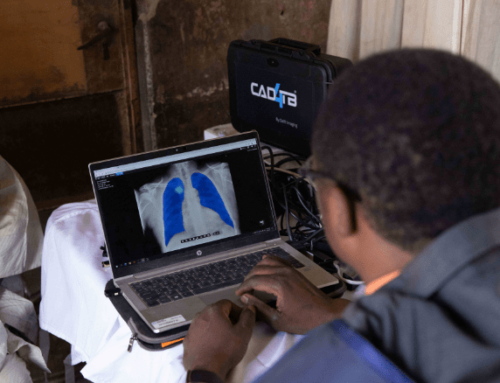Interview with Dr. Bethrand Odume, Executive Director of KNCV Nigeria
Nigeria is at the forefront of a transformative battle against tuberculosis (TB). Dr. Bethrand Odume, the Executive Director of KNCV Nigeria, is leading this fight. He is using new technologies to change how TB is detected and treated across the country. In this interview, Dr. Odume talks about the great progress being made with the help of tools like the Delft Light portable digital X-rays and CAD4TB solutions. From reaching remote areas to using new technologies, his insights show a story of hope and determination to improve health for all Nigerians.
How Delft Light and CAD4TB are making a difference
When asked about the impact of Delft Light and CAD4TB on Nigeria’s fight against TB, Dr. Odume expresses both pride and hope for even more success in the future.
“These tools have significantly enhanced TB detection in hard-to-reach areas across high TB burden states in Nigeria,” he says. ““Delft Light and CAD4TB have significantly enhanced TB detection in hard-to-reach areas across high TB burden states in Nigeria. These tools have showcased efficient screening and diagnosis with a notable impact on identifying TB cases.” The numbers are clear: with a number needed to screen (NNS) of 50 and a number needed to treat (NNT) of 4, these tools are very effective.
Dr. Odume also talks about the success of finding TB cases in the community. ““KNCV Nigeria’s use of portable digital X-rays with CAD has significantly enhanced TB detection, with a high evaluation rate of 99.7% and a notable TB yield of 24% among screened clients. These technologies are transforming TB care in underserved communities and showing substantial potential in detecting TB.” he explains. “The deployment of Delft Light portable digital X-rays has improved access to TB services by reducing the cost of X-rays, transportation time, and money.”
Expanding across Nigeria
The use of Delft Light and CAD4TB is not just about using new technology but also about reaching more people. Dr. Odume describes how these solutions are being used in more places across Nigeria. ““These solutions have been utilised in remote areas across eight states with a high TB burden, leading to significant progress.“ he says.
A key part of this effort has been using these tools in Nigerian prisons as part of the USAID TB LON 1&2 project. “We screened 4,920 inmates and identified 72 TB cases,” Dr. Odume shares. “This initiative emphasises the pressing need to address overcrowding in prisons/ Correctional facilities to prevent the spread of TB and other infectious diseases.”
Working together to improve TB detection
Reflecting on the partnership with Delft Imaging and Nigeria’s National Tuberculosis Program (NTP), Dr. Odume is positive about what they have achieved together and what they can do in the future. “Our collaboration has been highly impactful” he notes. “Key highlights include high-yielding TB case-finding, expanded services, the iNTP project introducing new tools, and increased installations. Overall, the collaboration has significantly improved TB detection and treatment in Nigeria.”
This partnership is about more than just using new technology; it is about building a lasting system for fighting TB.
New tools, strategies, and community
The future of TB control in Nigeria looks bright, thanks to new projects aimed at expanding the use of Delft Imaging and CAD4TB solutions. Dr. Odume outlines the goals of these projects. “The new project aims to strategically implement Delft Imaging and CAD4TB solutions across Nigeria, including deploying CAD4TB for detecting Tuberculosis, expanding the use of portable digital X-rays for community active case-finding, leveraging the CAD4TB platform for data agility,” he explains. “By increasing the installed base of Delft Imaging solutions, we aim to enhance TB detection and treatment across the country.”
But it’s not just about using new tools; it’s about making sure these tools work well for the people of Nigeria. Dr. Odume praises Nigeria’s quick adoption of new strategies and methods. “The World Health Organization has supported the Nigerian government in developing guidelines, standard operating procedures, and adopting new regimens and interventions,” he says. “This support also includes building capacities and enhancing data analysis to optimise performance.”
He also talks about the smart use of informal health providers in low and middle-income countries (LMICs) like Nigeria. “About 65-90% of rural dwellers in LMICs use informal health providers as their first point of contact for health concerns,” Dr. Odume explains. “This approach has been successful in expanding TB care to underserved populations.”
The power of technology and partnership
As our conversation ends, it’s clear that Nigeria is making big progress in the fight against TB, thanks to new technology and strong partnerships. Dr. Odume’s insights show a country that is ready for major improvements in TB control. “Continued investment in these areas will be crucial in sustaining and enhancing these achievements,” he concludes.
This interview not only highlights how Delft Imaging’s solutions are changing things but also shows the strength and flexibility of Nigeria’s healthcare system. With leaders like Dr. Odume guiding the way, the future of TB control in Nigeria looks promising, paving the way for better health for millions of Nigerians.

